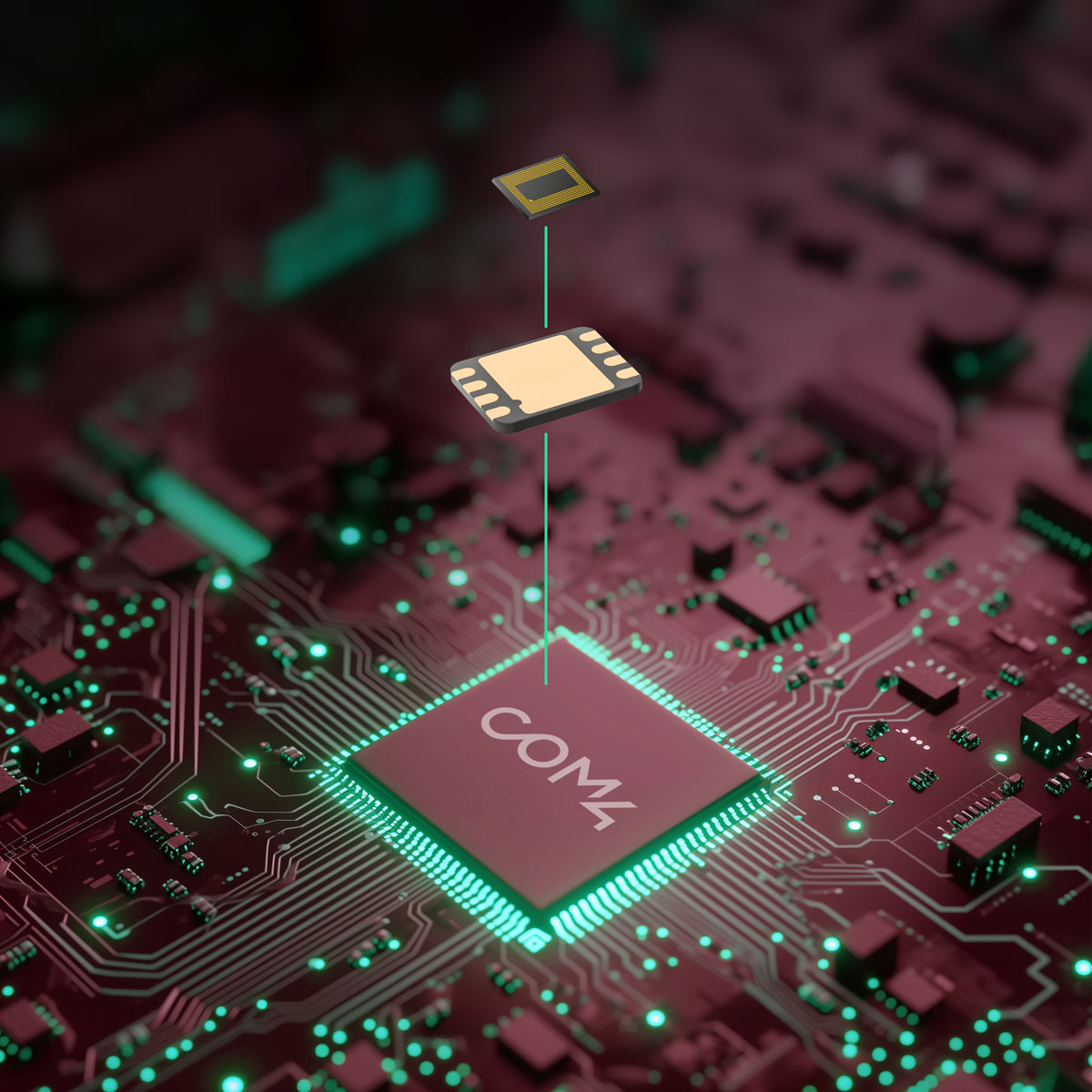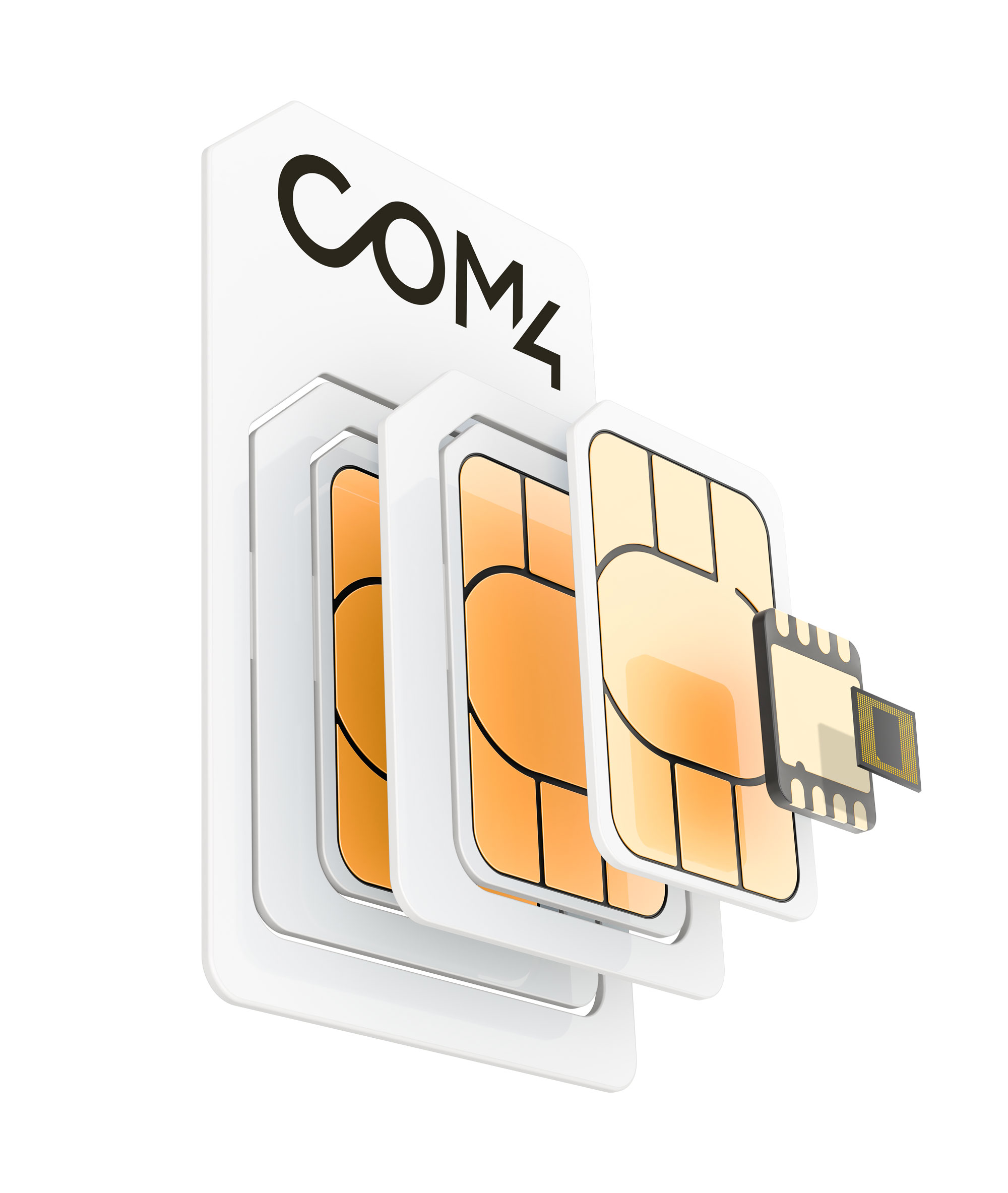
iSIM: The Future of SIM Technology
The term iSIM (or iUICC & ieUICC) refers to an integrated SIM, eliminating the need for a separate physical SIM chip in formats like 4FF, 3FF, 2FF, or MFF2. Instead, it is integrated directly with the processor core and utilizes the encryption capabilities of the SoC (System on a Chip) on a cellular module. Essentially, an iSIM can be envisioned as a shrunken SIM card incorporated within the SoC, effectively becoming its operating system. The iSIM adheres to the GSMA's eSIM and RSP specifications.
Trusted by IoT Leaders. Built on Partnership.






















Integrated SIM (iSIM) represents the next evolution in SIM technology, advancing beyond eSIM by integrating SIM functionality directly into a dedicated area within the System on Chip (SoC).
This space is protected by a tamper-resistant element (iTRE) or secure enclave, enhancing security. iSIM offers significant advantages, consuming up to 70% less power than traditional discrete SIMs and being 98% smaller than eSIMs, paving the way for ultra-power-efficient devices that were previously unimaginable.
iSIM Evaluation Kit
Unlock the potential of cutting-edge iSIM technology with our pioneering iSIM Evaluation Kit. This comprehensive solution offers true out-of-the-box connectivity, allowing developers and enterprises to test iSIM technology on their connected devices before scaling projects to full deployment.
The iSIM Evaluation Kit features a powerful combination of Kigen's secure iSIM OS, the Quectel BG773A module, Sony’s Altair ALT1250 chipset, and Com4's advanced Connectivity Management Platform. Together, they provide a seamless environment for evaluating iSIM capabilities, empowering you to innovate with confidence.
Includes:
- Com4 iSIM Profile
- Connectivity Management Platform
- Quectel Module & Sony Chipset
-
Supporting CAT-M1/NB1/NB2
-
100 MB of data per SIM per month
-
A 60-day validity period
Pricing: NOK 399 ($39), One-time fee.
*Limited availability of kits. Customers must agree to Com4's standard terms and conditions before onboarding.
Key Benefits
Ultra-Compact, Low-Power Module
The iSIM-enabled Quectel BG773A Eval Kit (EVK) from Com4 offers a CAT-M1/NB1/NB2 module, perfect for IoT applications like wireless POS, smart metering, tracking, and wearables.
Compact and Efficient Design
The module’s SMT form factor (14.9mm × 12.9mm × 1.9mm) reduces the footprint by 98% compared to traditional eSIM setups, allowing for more compact device designs.
Reduced Power Consumption
Built-in support for power-saving mode (PSM) and extended discontinuous reception (eDRX) minimizes power usage. The iSIM further reduces standby power by up to 70%, making it ideal for devices with lifetime batteries.
Cost Savings in Large-Scale Deployments
iSIM simplifies PCB design, reducing components and potentially lowering manufacturing and logistics costs by up to 50% for large IoT deployments.
Comprehensive Security and Data Protection
Integrated Security Elements (ISE) with GSMA-standardized iSIM ensure compliance with TCA and Global Platform standards.
Streamlined Deployment
A pre-provisioned Com4 iSIM profile eliminates the need for an external SIM card, simplifying and accelerating the deployment process.

Differences between iSIM and eSIM
eSIM
eSIMs are similar to traditional SIM cards in that they have a dedicated chip that stores SIM information. However, eSIMs are much smaller than traditional SIM cards, making them ideal for use in smaller devices like wearables and IoT devices.
iSIM
Unlike physical SIM cards that require a dedicated slot or eSIM/eUICC that needs a separate chip for setup, iSIM is not soldered onto the device's circuit board. Instead, it has a designated area on the system on chip (SoC) on a cellular module with tamper-resistant protection. Similar to eSIM, iSIM enables remote provisioning of network profiles by connectivity providers.


Transform your business and reduce your Total Cost of Ownership (TCO) by up to 50%
At Com4, we're committed to delivering the best SIM technology to our customers. That's why we partner with the world's leading manufacturers to bring you the latest iSIM-enabled devices.
So why wait? Experience the future of SIM technology today with Com4.
Blog
Unlock Advanced IoT Connectivity for Smarter, Scalable Solutions

eSIM or iSIM: Pick the Best SIM for Your IoT Devices
Two newer technologies, eSIM and iSIM, are helping IoT innovators address these challenges. Both...

A quick guide to everything you need to know about IoT SIMs

What is an M2M SIM Card? Machine to Machine SIMs in IoT Explained
M2M SIMs give sensors, equipment, and automated machines a secure way to stay online and share...

 CASE STUDY
CASE STUDY
